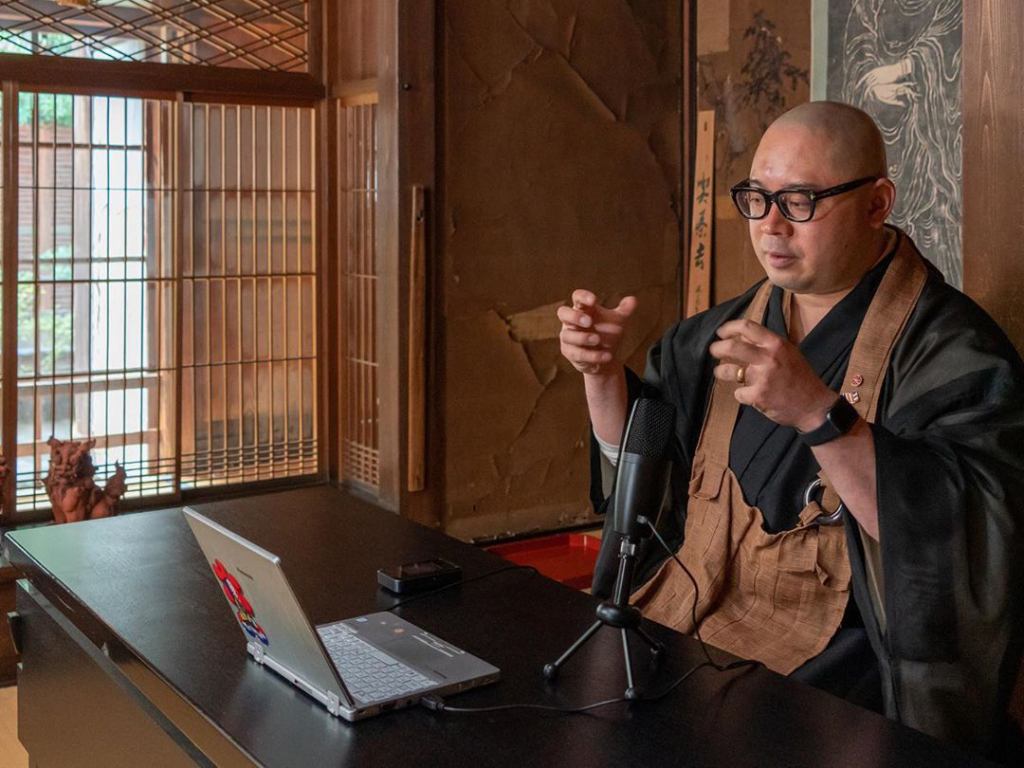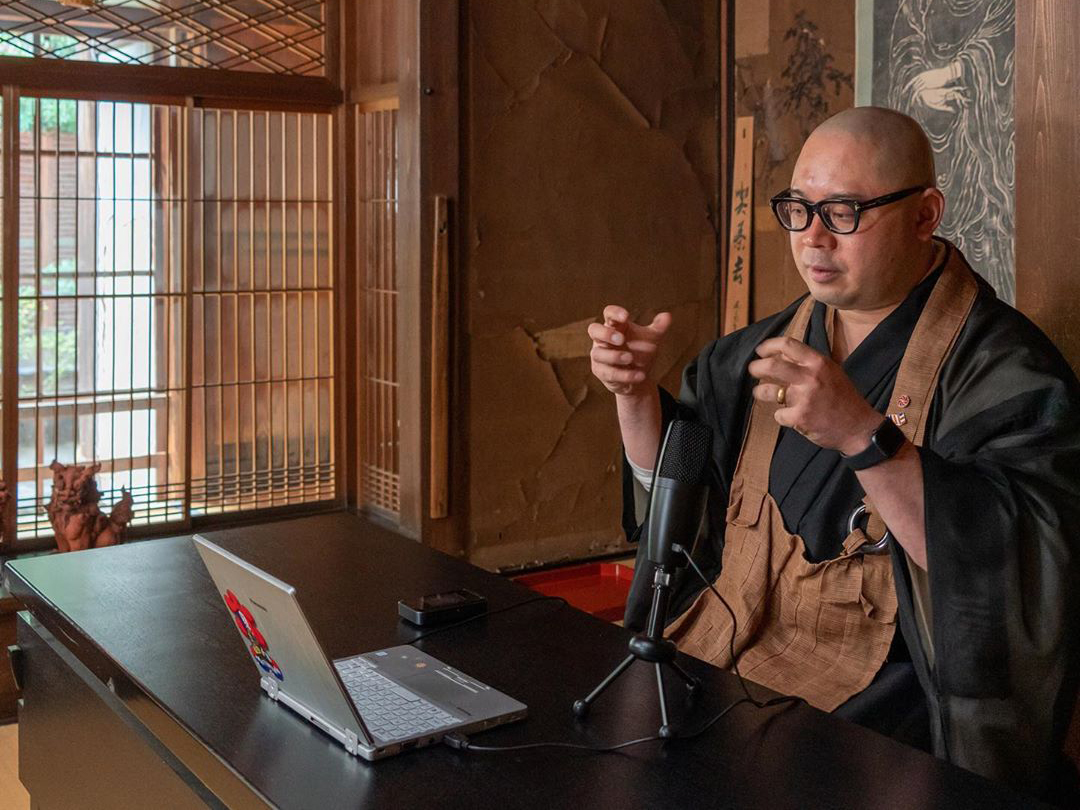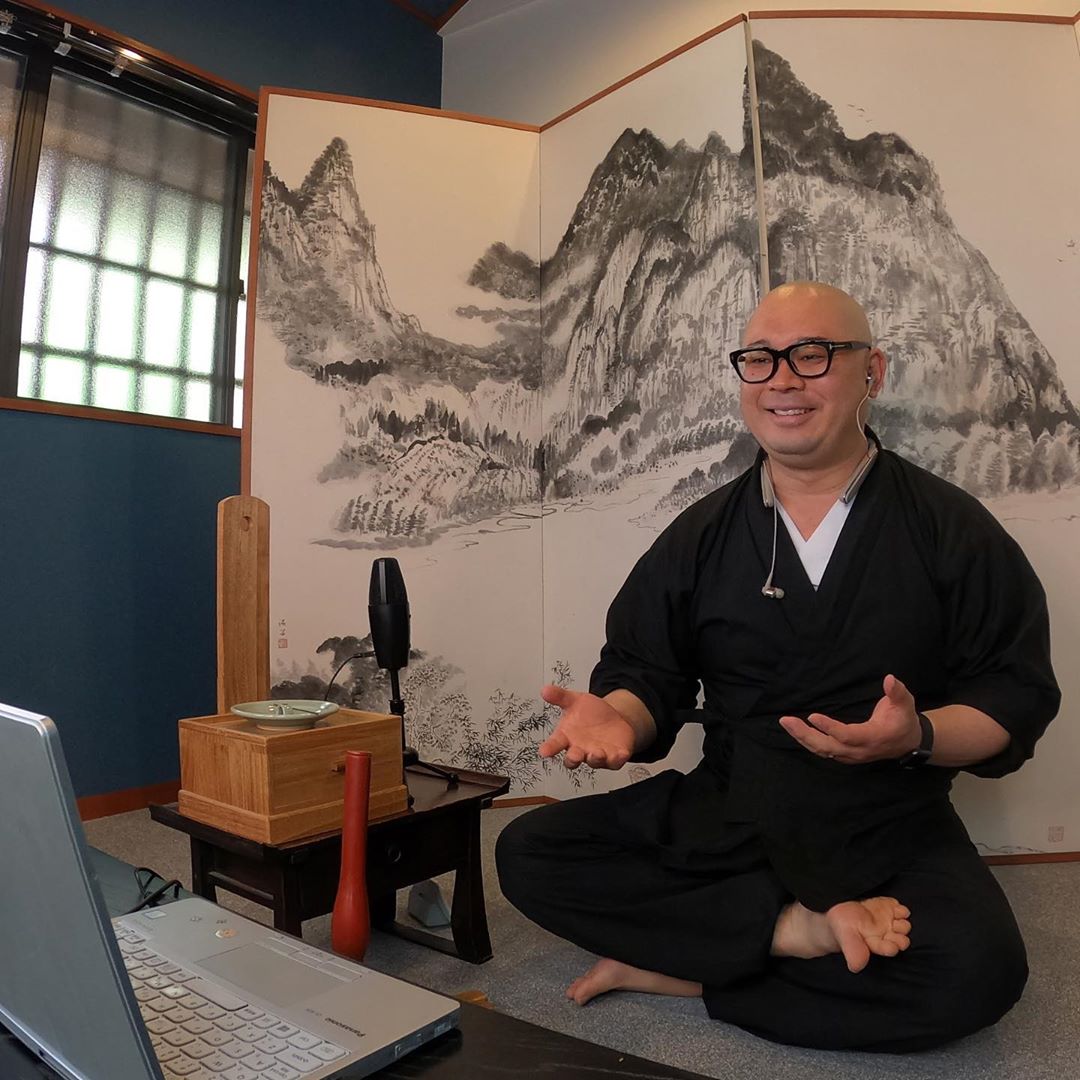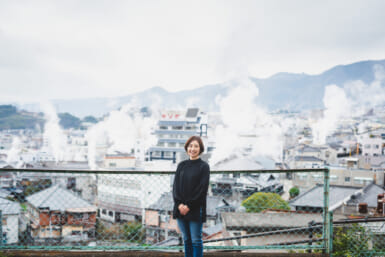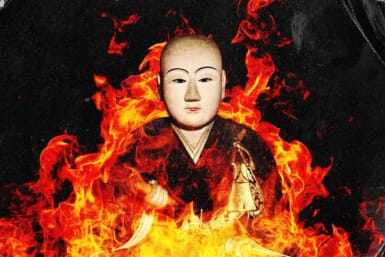If you’ve always been curious about Zen, there’s a silver lining to the situation we now find ourselves in. Self-isolation and working from home allow for plenty of time to explore zazen meditation, the cornerstone of Zen practice. Simply sitting in silence allows us to enter a state where the truth of the inner self is revealed and enlightenment is within reach.
“At least, that’s the common way of marketing it,” jokes Takafumi Kawakami, a priest at Shunkoin temple in Kyoto’s sprawling Myoshinji Zen complex. He’s a little more realistic about what zazen is and isn’t. For him, meditation is not just about looking inward, but also examining the connections between your inner mind and the exterior world. Your reactions to forces beyond your control are what make you who you are, and this is the heart of Zen for Kawakami.
Stay in Control of Those Slippery Emotions
One major way that Covid-19 impacts us is by generating strong emotions. Kawakami speaks of how we tend to over-categorize our emotions, with something like anger feeling singular in nature when in reality it’s a palate of feelings that manifest in various shades. The same goes for fear, an emotion rampant as we struggle with the uncertainty of a virus we cannot see. “When driving on ice and you start to slip, your instinct is to slam the brakes,” says Kawakami. Of course, this causes the car to swerve more wildly, but he explains that “this is your body’s natural reaction, and a method of looking for a quick solution.”
“Examining what makes us scared and uncomfortable allows us to better co-exist”
We do a lot of brake slamming nowadays, and sometimes those scrambles for quick answers only add more negative emotions to our life. When facing Covid-19, Kawakami urges us to “lean into the fear” and explore the emotions that we feel. While Covid-19 is indeed scary and our harmful emotions may originate from outside stimulus, by continuing to dwell on them we perpetuate them internally and give rise to other connected negative feelings. Examining what makes us scared and uncomfortable allows us to better co-exist with our environment and feel more at ease when we feel more in control of our emotions.
Lessons in Zen Meditation
For years, Kawakami has been teaching visitors how to examine their minds at his temple. Thanks to his eloquent English, Kawakami’s meditation courses and talks on mindfulness were popular with foreigners during the tourism boom. The temple grounds have remained closed to visitors in recent months, so the priest has taken his message online. In regular Zoom sessions, Kawakami offers meditation guidance and Q&A discussions with groups of followers from around the world.
For him, this group dynamic is a key part of getting through the pandemic. A sense of community and a common shared struggle among peers grants a sense of acceptance and comfort. This is integral to examining the connections we make with the world, and becomes especially important in times of crisis when we feel isolated or lonely. Kawakami is firm on this. “Meditation alone doesn’t help those who are feeling lonely due to Covid-19. In fact, it can make things worse,” he suggests. Whether in person or online, examination of the self must also include connecting with others.
The Space Between Us
So how can we conceptualize our connection with the rest of the world? The way that Kawakami confronts the Buddhist concept of ku (空) is particularly helpful. This is often translated as emptiness or void but Kawakami thinks of it differently. “The ku separating us all is not actually empty, it’s filled with connections,” he offers. “The goal of meditation is to find ‘the between’ that makes us who we are.” This is the essence of Kawakami’s message: confront your inner self by examining what exists between you and the world; your friends, your enemies, your desires and your emotions.
What exists in the ku between you and Covid-19? Perhaps fear of those around you not following safety protocols, anxiety over subconsciously not behaving safely yourself, or the ever-present fear of illness and death. While you may not be able to make those worries go away completely, Kawakami says that acknowledging these emotions and contemplating how they affect you is a healthy meditation exercise.
A Sip of Comfort
As his online courses increase in popularity, Kawakami has watched many students grow and learn to connect with their emotions in new, healthy ways. Others will attend for one session and think they have learned all the tricks. He cautions that Zen and meditation are not instant gratification like the rush of caffeine from a cup of coffee. To him, Zen is like sipping tea; it offers a gradual buildup of comfort.
“Don’t use meditation as an instant painkiller,” the priest cautions. “Let it transform you over time.” As the pandemic continues to grow, Kawakami’s methods and online classes are practical and easy ways to alleviate the fear and anxiety that arise from too much emotional brake slamming.
Learn more about Takafumi Kawakami on the Shunkoin Temple website. Beginners are welcome to join any of his online meditation sessions and self-cultivation courses.

